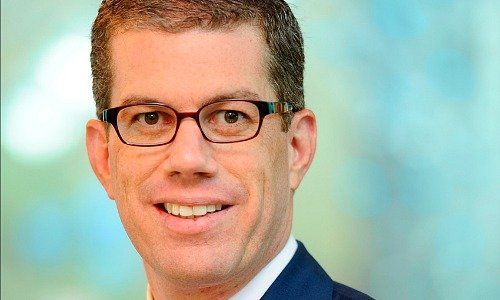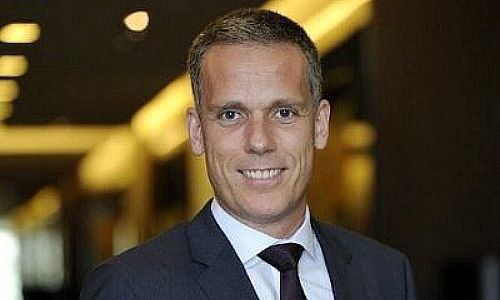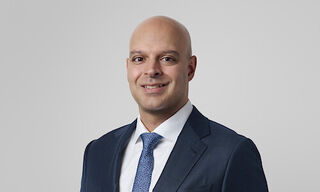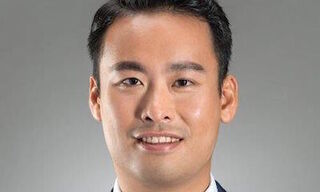Credit Suisse says it sees a major business opportunity in Thailand for its private bank, where it plans to have 12 advisors by year-end, part of a push by Chief Executive Tidjane Thiam's Asian expansion plans.
A growing economy with total wealth comparable to neighbors Malaysia or Singapore and a host of potential clients largely in cash -- the business case for a versatile and experienced private bank to move into Thailand is easy to agree with. But how does Thiam's team in Bangkok plan to crack this market, which private banking giants have until now largely shied away from?
finews.asia interviews the two Credit Suisse executives tasked with doing so, Southeast Asia head Benjamin Cavalli and Christian Senn, market head for Thailand and Vietnam who will be spending «a lot more time» in Bangkok building the bank's current team of six into double that by year-end.
Patriotic Thais
Credit Suisse set up shop in Thailand recently, saying the country will be home to 91,000 wealthy clients with an accumulated net worth of $451 billion. So why haven't Swiss and other private banks moved in as aggressively as they have in Singapore, Hong Kong, Malaysia, Indonesia and other Asian markets?
«The difference from Thailand to probably nearly all the other markets is that the vast majority of liquid bankable wealth is still in the country, while in other countries a process of diversification has taken place to a much higher degree,» Senn (pictured above) says.
The reason for the high level of liquid wealth is that Thais are typically very comfortable investing in their own country, as well as a more sentimental reason: «It is probably more the symptom or outcome of this comfort zone: the strength of families, the belief in their country. Thais are very proud of their country and politics aside they love the king,» Senn says.
Thai Move Towards Diversifying
In fact, wealthy Thais are unlikely to have moved towards diversifying their money at all had not the central bank and the Thai financial regulator, the Securities and Exchange Commission, or SEC, gently nudged them to do so, in part by keeping deposits rates very low and a controlled devaluation of the baht, aimed at protecting the economy.
«If this wasn't the case, I think we could go on for an extended period of time with this massive segregation of large domestic wealth and a smaller portion outside, which is now changing,» says Senn.
The wealthy in Thailand, which unlike many neighbors escaped colonization and thus doesn't have a historical ties in the same manner that, for example, Hong Kong or Singapore do to London, have few investment opportunities.

«You're either in equities or a handful of fixed income opportunities,» Cavalli (pictured above) says, typically with an outsize exposure to domestic real estate as well as to the Thai currency. The concentration of money inside Thailand comes as a younger generation of Thais educated in the U.K. or U.S. return home, eager to bring a more global approach to their family's investment.
Ossie Dollars
Thailand's conundrum is that domestic banks have ample clients and are heaving with deposits, but lack sophisticated financial expertise outside their own market. By contrast, foreign giants like Credit Suisse have the financial expertise, often in conjunction with an investment bank, as well as the platform, but lack the private clients -- thus far.
Credit Suisse's Geneva-based rival Lombard Odier has linked up with Kasikornbank, a Bangkok-based lender focused almost entirely on the domestic market. The Zurich giant's approach is different: Credit Suisse is setting up on its own in the hope that its investment banking clients will serve as a feeder for its private bank.
The approach is a long-standing one at Credit Suisse, started by former CEO Oswald Gruebel roughly ten years ago, in which bankers earn virtual currency for passing on business in-house. The virtual money, which Credit Suisse calls single global currency but which was quickly dubbed «Ossie dollars» in Gruebel's honor, then translates into an actual financial banker bonus at year-end.
Cavalli doesn't disclose separate targets for Thailand, part of a larger Asia Pacific region where Credit Suisse manages 150 billion Swiss francs. However, due to the dearth of private banks in Thailand until now, growth is expected to outstrip that of the Credit Suisse's wider private banking operations in Asia.
Credit Suisse As Tutor
Thailand has until now largely escaped the radar of private banks setting up shop as they have in Hong Kong and Singapore because its per capita wealth is low in comparison, according to Sua Mei Chua, a researcher at Cerulli Associates.
«However, the distribution of wealth is highly uneven, and there is a segment of high net worth individuals who are under-served by the domestic banks, and overlooked by the global banks,» she says.
Those clients large and lucrative enough to entertain a global bank would likely choose one in Singapore, but there is a larger segment of the market in the country being ignored – which Credit Suisse hopes to get in on.
Serving these clients goes hand in hand with educating them about why diversifying outside their home turn makes sense, Senn says.
With a extraordinarily high percentage of liquid wealth held inside Thailand virtually dormant and a very small portion split among offshore banks, Credit Suisse is set to pounce.
«The future in this respect is really which bank connects the two dots in the smartest way,» Senn says.





























